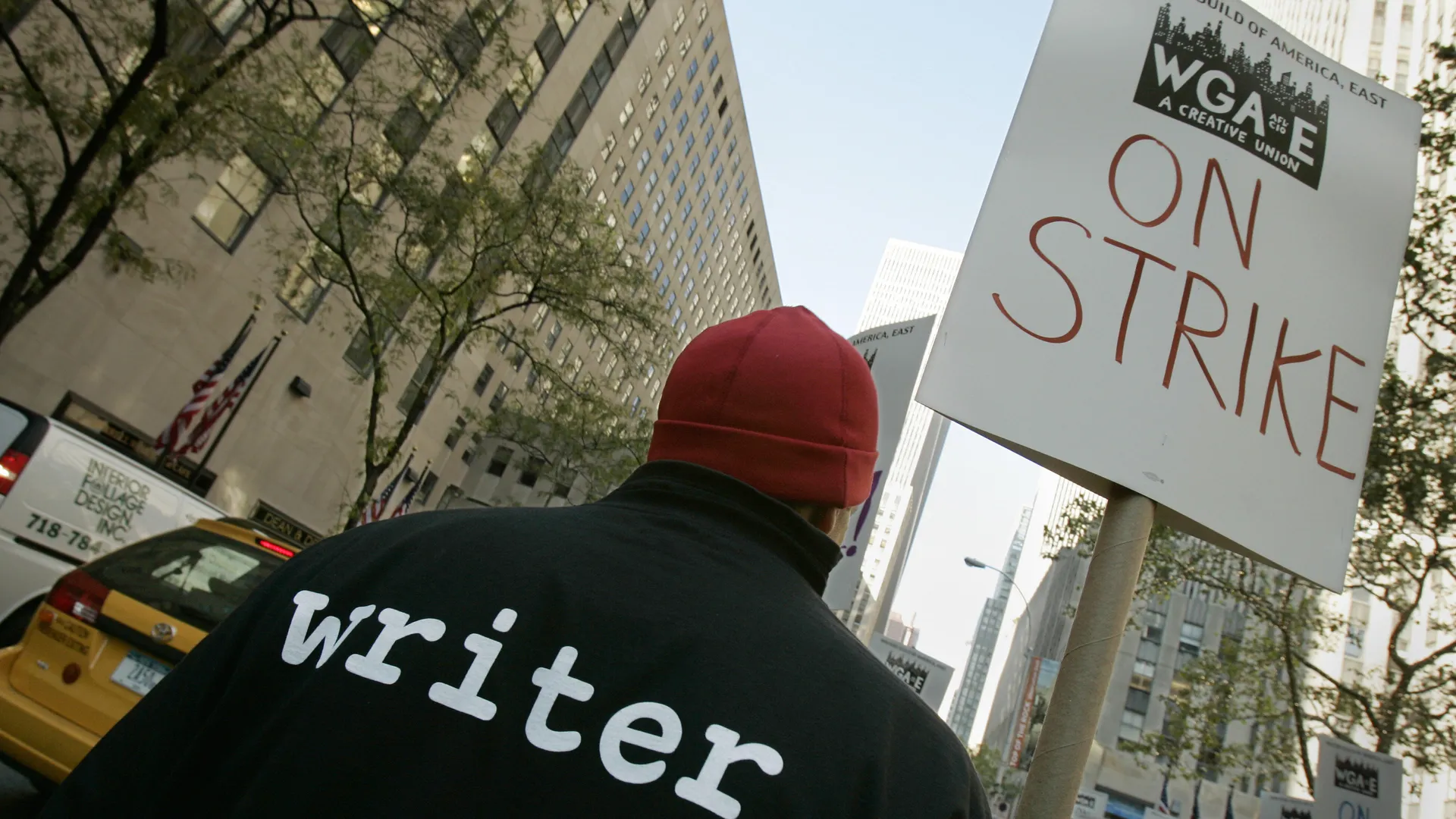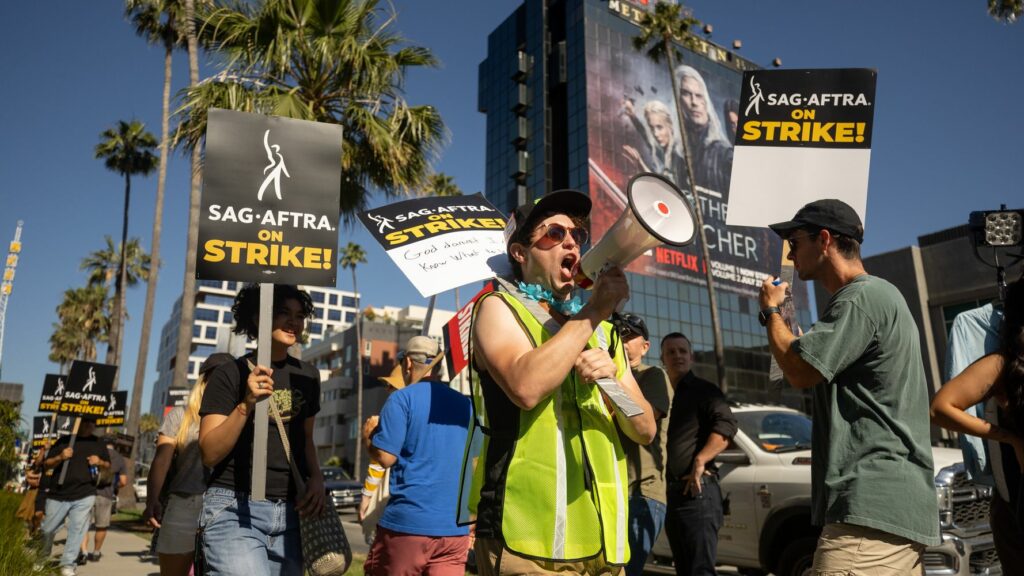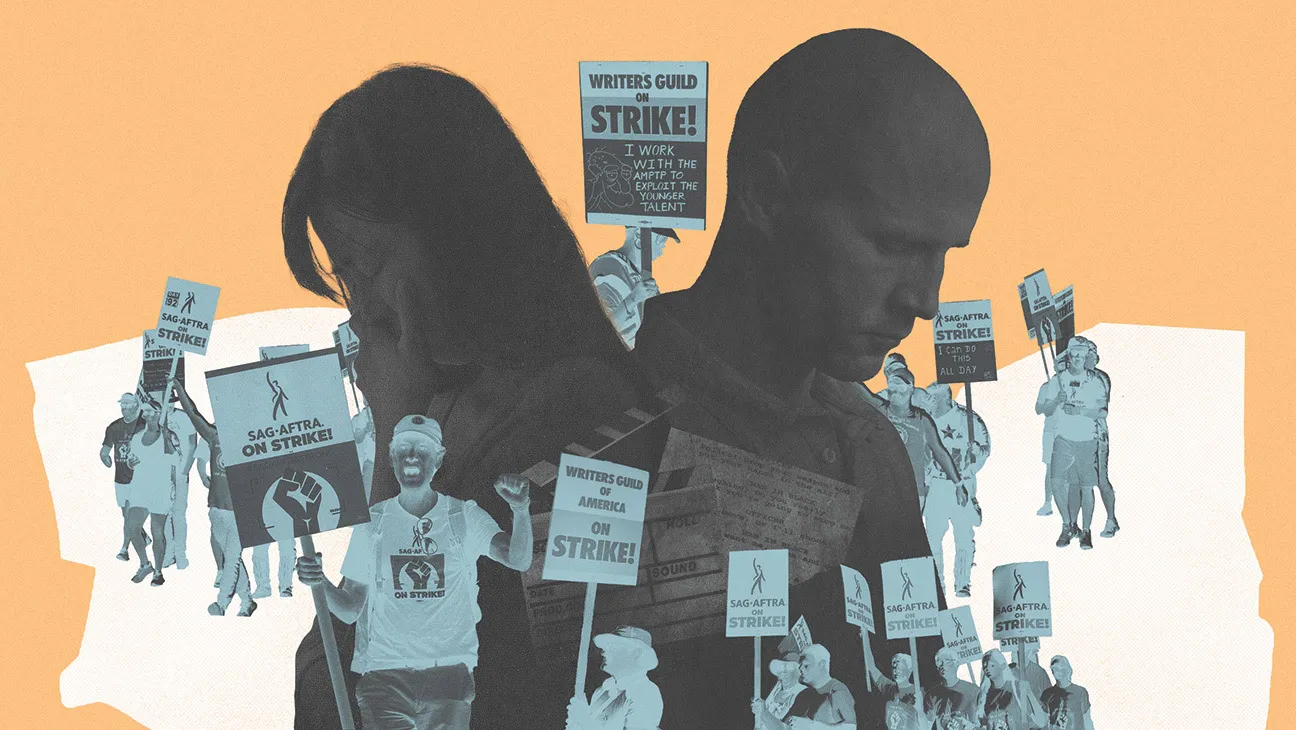In Hollywood, where movies and culture intersect, an unscripted drama is unfolding due to the actions of actors and writers.
The Writers Guild of America (WGA) and Screen Actors Guild (SAG) strikes against the film studios are really about an age-old issue in American entertainment: the disruptive nature of new technologies as they periodically overthrow the status quo. The introduction of new technologies has shaped the history of film and the film industry, from sound and color to television and video. Currently, streaming and artificial intelligence are popular.
In each instance, the industry viewed these innovations with caution. Both television and video were perceived to be existential threats. And they indeed were. Those who realized that innovations could be used to create revenue streams beyond the box office, however, saw profits far exceeding those of the past.
Once again, the entertainment industry is undergoing profound technological change.

For actors and writers, these issues are relatively simple. Despite the fact that technically streaming companies pay residuals to actors and writers, the payments are substantially lower than those generated by theatrically released films or broadcast television series due to the opaque system used by streamers to allocate revenue to individual films or TV series.
In addition, the preference of distributors to limit the number of episodes per season to no more than ten significantly reduces residuals for actors and writers. AI raises the possibility of actors losing control over their likenesses and being supplanted by computer-generated characters. Writers may need to share credit with AI-generated scripts or risk losing their employment to them. The difficulty posed by the recent court ruling that artworks created solely by artificial intelligence cannot be protected by copyright can be easily circumvented. Simply incorporating human beings into the writing and filmmaking process.
RELATED: As Strikes Continue, Warner Bros. Discovery Anticipates A Revenue Impact Of Up To $500 Million

These strikes also disclose a larger issue: the unfairness that is been around for a long time. There is more to Hollywood than glitz and grandeur. It is about the laborious work of writers and actors who make it all happen. Now, the industry has the opportunity to improve conditions and serve its employees fairly.
The strikes are disclosing how poorly compensated performers and writers are in comparison to studio executives, many of whom continue to earn eight- and nine-figure salaries despite declining box office receipts.
Writers create the stories that become our beloved motion pictures and television programs. But these writers do not always get paid fairly, particularly when their work is shown on streaming platforms. The WGA strikes have revealed the fact that writers can earn as little as three figures for a year’s worth of their work on streaming sites like Netflix.

Actors are also on strike, demanding improved pay and working conditions. Not for the first time, this has occurred. In 2000, actors fought for and gained their rights.
Who will ultimately prevail? The strikes are now causing actors and writers significant financial hardship. However, studios are also suffering. Films slated for release in late 2023 and the summer of 2024, the prime periods for the release of high-profile (and expensive) films, are now at risk of missing their release dates, resulting in a significant loss of revenue at a time when box office receipts were already declining. Everything indicates that a settlement is imminent.
Will the artisans ultimately triumph? Historiography indicates that they will not. The strikes will likely end with wage concessions and promises of restitution to actors and writers, but the actual threat is real. Technology is unstoppable. The possibility of unpaid employees (AI) is simply too lucrative to disregard. Every Hollywood strike that has ended has resulted in a win-win situation, but the fundamental inequity never changes. Studios (and now the largest streaming services) will always have the upper hand because they control the industry and have the deepest pockets: they control the money.

The WGA and SAG strikes are a wake-up call in a world where streaming and technology have the potential to completely transform the entertainment industry. They are urging those in charge of the industry to fix the situation not only for the present but also for the future. We all enjoy movies, and the people who create and make them should be respected and paid fairly. These strikes are a chance for Hollywood to put things right and demonstrate that it values its workers, who all contribute to the magic of movies.
Stephen R. Greenwald has been involved in the film industry and related industries for more than four decades as an attorney, film financier, corporate executive, producer, and consultant, including as the CEO of three publicly traded film companies. Greenwald is an Of Counsel at Garson, Segal, Steinmetz, Flamgate LLP.
Paula Landry is a writer, producer, and consultant in the film industry and media who is interested in disruptive business models. Landry creates feature films and episodic content, business plans, budgets, and schedules, as well as branded content for Fortune 500 and non-profit organizations. Landry is the president of IdeaBlizzard Productions, as well as the author of Scheduling and Budgeting Your Film: A Panic-Free Guide and Applying Entrepreneurship to the Arts: How Artists, Creatives, and Performers Can Use Startup Principles to Build Careers and Generate Income.
Download The Radiant App To Start Watching!
Web: Watch Now
LGTV™: Download
ROKU™: Download
XBox™: Download
Samsung TV™: Download
Amazon Fire TV™: Download
Android TV™: Download

